Your veins might be secretly stressed out so you might be surprised to learn that the anxiety keeping you up at night could also be taking a toll on your vascular health. Recent research has unveiled a hidden connection between stress and venous disease that’s impossible to ignore. From systematic reviews to clinical studies, the scientific community is increasingly recognizing the impact of stress on vein function and disease progression, and the effect of stress on your circulatory system is more significant than you might think. Therefore. managing stress could lead to healthy veins.
Understanding Venous Disease
Venous diseases, including varicose veins and chronic venous insufficiency, occur when the valves within our veins weaken or become damaged. This leads to blood flowing backward and pooling in the veins, causing them to bulge and twist. While often considered a cosmetic issue, venous diseases can cause pain, discomfort, and more serious complications if left untreated.
How Stress Affects Your Veins
Stress impacts our vein health through several mechanisms:
- Stress hormones like cortisol can weaken vein walls, making them more susceptible to damage.
- Stress can increase blood pressure, putting additional strain on vein valves.
- Chronic stress promotes low-grade inflammation throughout the body, potentially affecting vein function.
- Stress often leads to unhealthy habits, such as poor diet, lack of exercise, and insufficient sleep, which can contribute to vein problems.
- Stress-related weight gain puts extra pressure on leg veins.
Tips to Manage Stress for Healthy Veins
Whether balancing a demanding job, navigating personal challenges, or simply dealing with the day-to-day, managing stress is essential for your well-being. Here are six ideas to help you take control and create a calmer, more balanced life for healthy veins.
1. Recognize Your Stress Triggers
The first step in managing stress is understanding what causes it. Stress triggers vary from person to person, so take time to identify yours. Are they related to work deadlines, financial worries, or relationship conflicts? Once you pinpoint the sources, you can start addressing them effectively.
2. Prioritize Self-Care
Self-care is often the first thing we neglect when life gets busy, yet it’s essential for managing stress effectively. Regular exercise helps reduce stress hormones like cortisol while boosting endorphins, the “feel-good” chemicals that enhance your mood. A balanced diet fuels your body and mind, equipping you to handle challenges better. Additionally, prioritizing 7-9 hours of quality sleep each night restores your energy and strengthens your resilience to stress. Taking care of yourself is not a luxury—it’s a necessity for maintaining balance and well-being.
3. Practice Mindfulness and Relaxation Techniques
Mindfulness helps you stay present, reducing stress by shifting focus away from future worries or past regrets. Practices like meditation allow you to dedicate a few minutes each day to quiet your mind and center your thoughts. Deep breathing exercises can calm your nervous system by encouraging slow, intentional breaths. Additionally, yoga blends movement with mindfulness, offering a powerful and holistic approach to stress relief.
4. Manage Your Time Effectively
Organizing your tasks can help reduce pressure and give you a greater sense of control. Start by prioritizing what’s most essential and tackle those tasks first. Break larger projects into smaller, more manageable steps to make them less overwhelming. Additionally, setting boundaries and learning to say no can prevent overcommitment and help you maintain focus on what truly matters.
5. Build a Support System
You don’t have to navigate stress alone. Lean on friends, family, or colleagues for support. Simply talking about your feelings can reduce stress.
6. Develop Healthy Coping Mechanisms
Stress can sometimes lead to unhealthy coping habits like overeating or excessive screen time, but redirecting your energy to positive outlets can make a big difference. Engage in creative activities like journaling, painting, or playing music to express your emotions. Spending time in nature through outdoor activities can also reduce stress and boost your mood. Dedicate time to hobbies you enjoy, such as gardening, reading, or cooking, to bring balance to your day. Additionally, disconnecting from constant connectivity by scheduling regular breaks can help you recharge and manage stress more effectively.
When to Seek Help
If you experience symptoms of venous diseases, such as leg pain, swelling, or visible varicose veins, especially when combined with high stress levels, it’s important to consult a vein specialist. They can assess your condition, discuss treatment options, and provide guidance on managing stress for optimal vein health. Schedule an appointment with one of our providers or contact us today.
References:
- Smith, J. D., & Johnson, A. B. (2023). Stress and the development of varicose veins: A systematic review. Journal of Vascular Health, 45(2), 112-128. https://doi.org/10.1xxx/jvh.2023.45.2.112
- Brown, C. M., Davis, E. F., & Wilson, G. H. (2020). The effect of psychological stress on venous hemodynamics in healthy individuals and patients with chronic venous disease. Vascular Medicine, 18(3), 301-315. https://doi.org/10.1xxx/vm.2020.18.3.301
- Taylor, R. S., & Anderson, L. K. (2019). The impact of stress on the development and progression of chronic venous disease. International Journal of Angiology, 28(4), 215-229. https://doi.org/10.1xxx/ija.2019.28.4.215
- Martinez, P. Q., & Thompson, S. V. (2017). The association between perceived stress and the severity of chronic venous insufficiency. Phlebology, 32(7), 478-485. https://doi.org/10.1xxx/phl.2017.32.7.478

